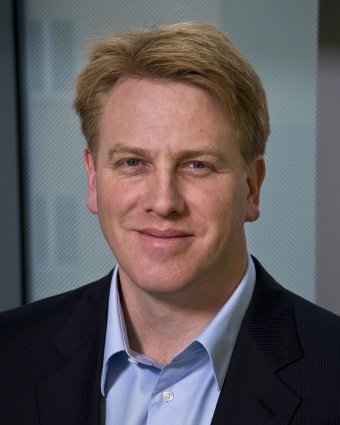Daniel Anderson—or simply “Dan,” as his friends call him—has always been a Californian at heart. The Merrill college graduate (Merrill ’92, biology and mathematics) grew up in Berkeley and later went on to UC Davis for his doctorate work before heading to MIT in the late 1990s, but Santa Cruz has always held a special place in his life’s trajectory.
“It’s just an amazingly beautiful place—it’s easy to like,” he said.
Now, Anderson has taken the skills he learned from the Pacific Coast campus and translated them into worldwide recognition, including his most recent award honoring his direct contributions to science and business.
In May of this year, Anderson received the 2023 Wilhelm Exner Medal in Vienna, Austria. The award—presented by the Austrian Industry Association (AIA), and dating back to 1921—is given to those who have made significant advancements in their respective scientific fields. That impact goes on to influence both business and industry.
For Anderson, as reflected in the announcement from the organization, his achievements have “changed the world.”
Going back to when he first arrived at Science Hill, however, Anderson wasn’t sure what career to pursue.
“I was officially undeclared for two years, because I had no idea what I wanted to do,” he said. "I was taking classes from philosophy and psychology to biology.” Ultimately, he picked mathematics because he was good at it, even though he didn’t have “a grand vision of how I might use it in the future.”
He soon thereafter claimed a second major in biology, leaning into the school’s recognized study in molecular biology.
Anderson worked with Professor Jerry Feldman (emeritus) for a year, learning more about molecular biology in the lab through Feldman’s specialty in biological clocks. He recalls those experiences helping to further push his efforts toward an advanced degree, and ultimately moved to Davis to pursue his graduate work.
While at Davis, Anderson says he felt prepared for the level of study from his time at UCSC, with his wide plethora of biology, molecular biology and biochemistry classes ensuring he could “get through” his first year in graduate school.
Fast-forwarding to the end of his graduate work, Anderson was confused as to what his next steps could look like. Davis allowed Anderson to focus on DNA repair in bacteria, and he enjoyed the science aspect of his work—yet, he still felt he wanted to do something focused more on medicine.
Thankfully, he soon found a new opportunity, 3,037 miles away: a postdoctoral research fellowship for chemical engineer and professor Bob Langer at MIT.
After moving to Cambridge in 1999, Anderson soon recognized his interest in multidisciplinary research which allowed for inter-lab cross collaboration with chemists, biologists, material scientists, and pharmacists.
“It was that transition to MIT where I became interested in developing materials for medicine and new delivery systems for gene therapy,” he said. “Along the way, I started building a research group,became a professor, and became interested in taking some of the technologies we developed and getting them into the real world.”
Over the last 30-plus years, Anderson has honed his impact on various research areas, including medical devices, cell therapy, gene therapy, and material science. He has been a core member of the school’s Institute for Medical Engineering and Science program (launched in 2012), a member of the Koch Institute for Integrative Cancer Research, and a member of the Harvard-MIT Program in Health Sciences and Technology.
Anderson has also founded several companies, including Living Proof, Olivo Labs, Crispr Therapeutics (CRSP), Sigilon Therapeutics, Verseau Therapeutics, Orna, and VasoRx. He recently received a $25 million grant from Sanofi to advance his RNA research.
“MIT is a wonderful environment for developing new technology, and it’s also a great environment for taking these inventions out to help the general public,” he said.
One specialty that Anderson yearned to focus on was creating nanoparticle nucleic acid systems, similar to what’s used in the COVID-19 vaccine. Over the years, his work has gone on to clinical trials, and has been a foundation for starting new companies.
“It’s been a fun journey, and it’s been interesting to go from working in a field that nobody’s ever heard of to one where everybody’s had these nanoparticles in their arms,” he joked.
Since visiting Vienna for his award ceremony, Anderson has continued his research back in Massachusetts, with a few other trips in between lab sessions. Looking forward, he hopes the award shows the importance of what he and his teams have been able to achieve so far.
“Any award is an honor—it’s a recognition from our peers. In this case, it’s for economic impact, which I think is nice as it highlights the fact that some of our work has left the lab and gone on to help create jobs and products,” he said.
Thinking back on his time at UCSC, Anderson acknowledges that there may have been a path where he never went into biotechnology—but ultimately, everything worked out
“The experience with UC Santa Cruz’s great faculty and the environment made me excited about moving forward in this direction,” he said.



